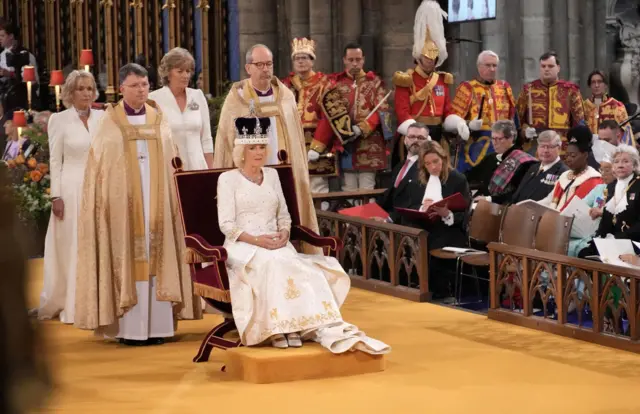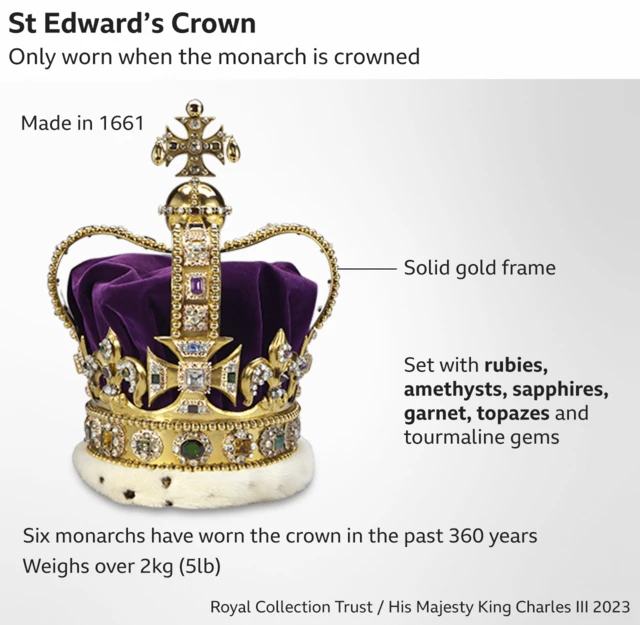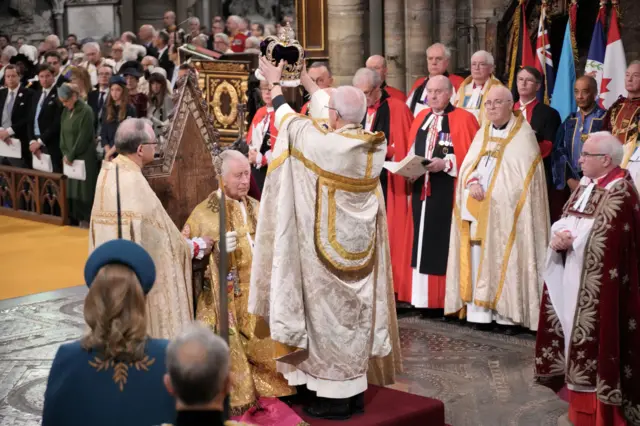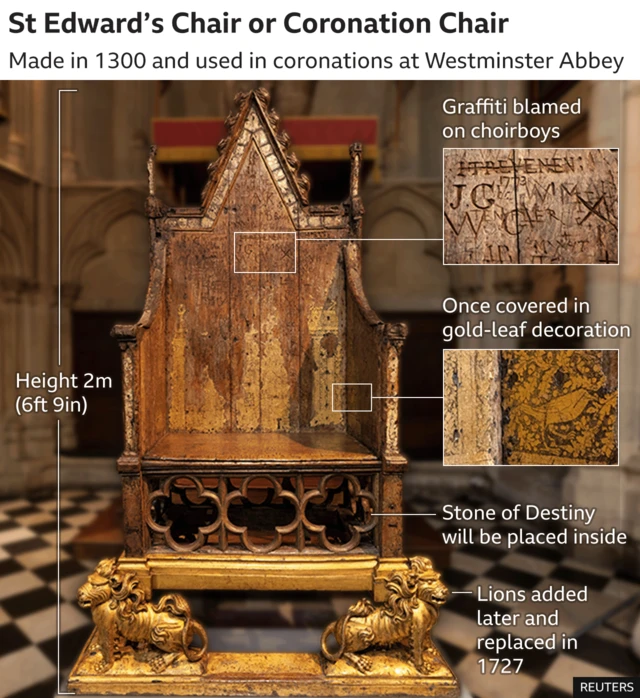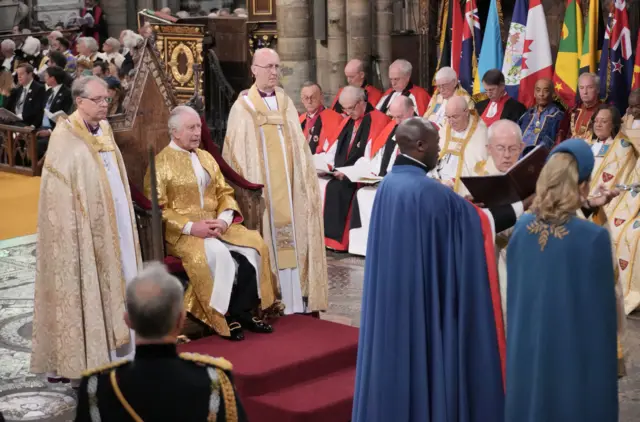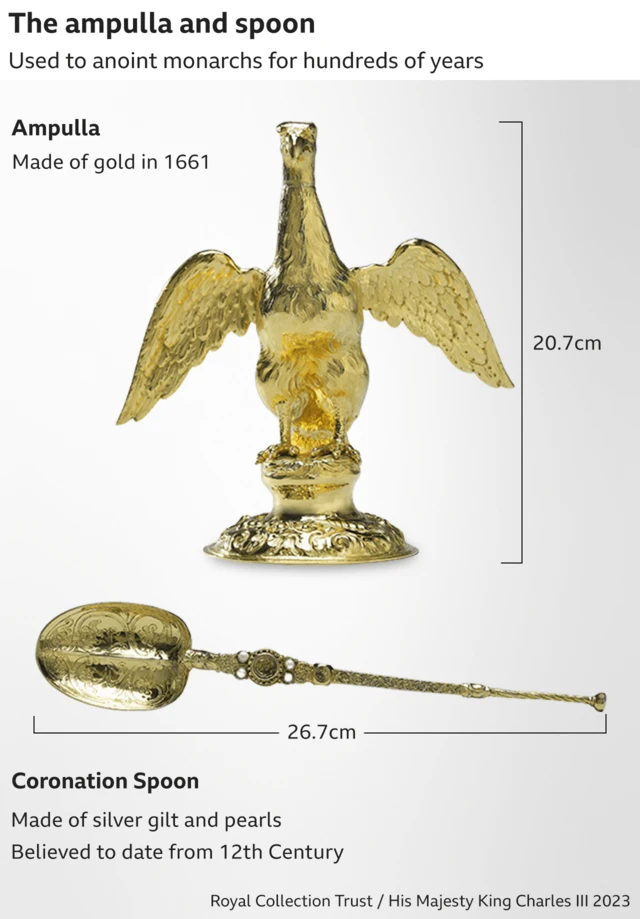In pictures: The crowning momentpublished at 12:20 BST 6 May 2023
The congregation sings a hymn - and we have more photos for you as they do so.
Here's the moment King Charles III was formally crowned as monarch.
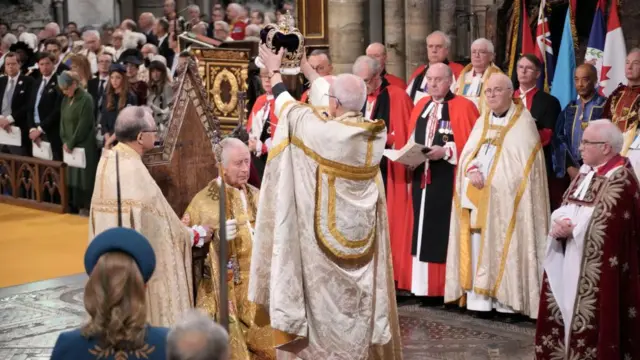 Image source, PA Media
Image source, PA Media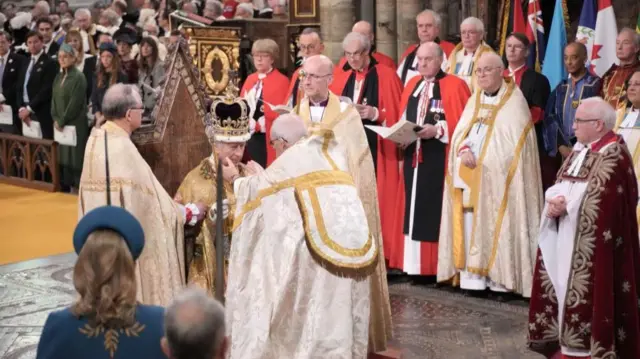 Image source, PA Media
Image source, PA Media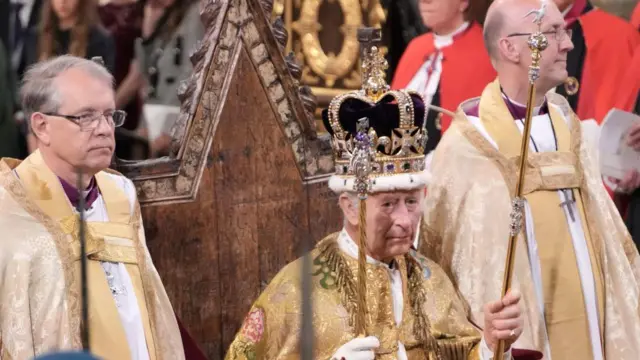 Image source, PA Media
Image source, PA Media
